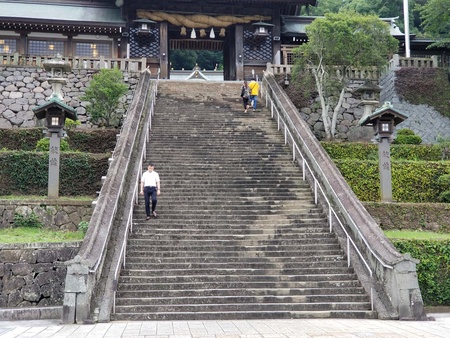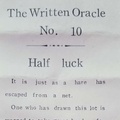After being born and raised in the Black American community, years ago I had the opportunity to confirm my genetics through testing. I found out that I had Bukharan-Jewish and Japanese ancestry.
I wanted to know about my ancestry ever since I was a child. However, in spite of America’s claims of embracing Diversity, there is an implicit tendency for Americans to put others in “boxes” and define them. I often heard the saying, “act like how you look like.” In the best case scenario, people will present “boxes” to you and tell you to choose the “box” that represents you the most. In the worst case scenario, people will choose a “box” for you, and insist that you conform to that “box” and act accordingly.
In the Black American community especially, there is pressure for mixed Black people to “choose” which ethnic background they will represent. If you refuse to be “just Black,” then you are considered a sell-out and not proud of your Blackness.
Well, I was raised to be Black and Proud, so I carried that mindset throughout my childhood and teens. However, I was never seen as “Black enough” by the Black American community. Eventually, I no longer desired to prove I was “Black enough” for anybody. I was done with proving myself.....and I think I will always be done with that.
I learned that many of my relatives are not biologically related to my immediate family, but connected through marriage from a few generations ago. My grandmother was raised by her second cousin, who became her father figure, so his biological children and stepchildren were the only family she knew. I referred to him as “Great-granddaddy” to his last day on earth.
However, the only ancestry I knew was that of his wife’s family. At first, my immediate family was raised to believe that we were related to her. However, I learned that my immediate family was not biologically related to her at all. That meant that the story of my ancestors had to change. I already knew that “Great-granddaddy” had Black and Scots-Irish heritage, but he wasn’t my real great-grandfather. So I eventually decided to do genetics testing. I was not interested in finding names of unknown relatives, only genetic tracing.
When I got my genetics results, everything about my own existence made sense to me. Don’t get me wrong: you do not have to be biologically related to someone in order to be “family." However, when treatment from “family” lands you in subtly shady situations, you want to know WHY. After encountering so much subtle shade, I started looking for answers. I had no desire to endure subtle shade for the rest of my life. I did not want to normalize chaos, dysfunction or toxicity. I was done with that, too.
After being assimilated into the Black American community for so long, I had to shift my journey to a place outside of it. I was familiar with Jewish and Japanese culture, so I had some foundation to work with. However, all of the knowledge in the world can not substitute for experience. After exploring the Bukharan-Jewish world, it was time to delve into the essence of Japanese—or in particular, NIKKEI—existence.
JOURNEY AND LIFE IN JAPAN
Referring to myself as “Nikkeijin” has been one of the best things for me, because it is the one word that can include EVERYTHING about myself. In my particular case, it includes my Blackness as well as my Bukharan and Japanese encestry.
Here are some interesting things I have learned from my life in Japan:
-
Japanese people do not understand the concept of being “part-Japanese.” If you are half-Japanese, then they will see you as Hafu. If you are full-or-part-Japanese born and raised in another country with foreign citizenship, then Nikkeijin is a good way to describe yourself.
On the other hand, if your parents are from Japan with Japanese citizenship and you were in another country and were exposed to a foreign culture since childhood, then you will be known as Kikokushijyo. This term refers to a first generation Japanese child who lived and studied abroad for many years, yet still has Japanese citizenship and returns to Japan as a teenager or young adult.
-
Many Nikkeijin and Hafu complain about being treated like they are not Japanese enough. As a rule, you need the following three things: full or partial Japanese ancestry, some knowledge of the Japanese language, and a connection to Japanese culture. If you lack any of these things, then it will be used to discredit you. So what happens when you have these three things but you are still discredited?
-
Nationalism is a tool for pride and self-esteem. When you have the three attributes but you’re still brushed off, it is not based on disbelief. At this point, some Japanese people are trying to feel secure in their own identities. Many Japanese athletes, entertainers and models are mixed. So there is a tendency for many Japanese people to avoid having a complex. On the one hand, they have pride in anyone who makes Japan look good. Still, there is a fear that mixed genetics—rather than talent and/or hard work—contributes to exceptional ability.
-
Many Japanese people only know about their immediate and extended families, but can not trace back to over 100 years ago. When I found out about my distant relatives—a clan from Suwa in Nagano, I learned that my distant relatives engaged in controversial behaviors. Such behaviors might have had a negative impact (multi-generational karma?) on my ancestors after them as well, but that is another story. When I share a basic backstory with Japanese people, many of them say to me, “most of us don’t know our family history, and we don’t want to know.”
-
Acceptance from others is based on individual experience. No two people will have the same exact experience. I was expecting the younger generation to be open-minded, and the older ones to be set in their ways. I was understanding of this, because older people were raised in a different time to have a different mindset. However, my experience disproved my expectation; except for the Nationalists, the elderly are more accepting of me than younger people. Once the elderly find out about me, they are often very friendly and talkative. Many younger people accept me, but young women in particular give me the most difficult time. I rarely have issues with young men, except for Nationalists. Maybe some of you readers can explain reasons for this dynamic?
-
Being aware of, yet unphased by, other people’s ignorance will help make you a stronger person. I learned that people project themselves on their outer environment and other people. If people are fearful and insecure, they will project their fears and insecurities on others. Many people feel entitled to assume things about you and define you, without ever talking to you. They are not necessarily interested in being open-minded and getting to know you. They are too busy trying to validate their own insecurities and masking their own fears. So they will watch you like a hawk. They are battling those issues within themselves, and it is not your responsibility to validate people who LACK confidence, knowledge, and understanding based on your identity. You do not have anything to prove to anybody, but you have to learn not to let other people’s ignorance frustrate you.
Reconnecting to my ancestral roots in Japan helped me understand the drama I dealt with for so long in the States. I learned that some people can develop a strong dislike for me, because I do not fit any “box” they choose for me. I did not know that it was essential for some people’s feelings of security. If some people don’t know which “box” I belong in, then they are unsure of how to deal with me. That makes them feel anxious, because they feel like they are not in control when they interact with me. They need to be able to figure me out for the sake of their own security. Again, this due to LACK of confidence, knowledge, and understanding.
The bottom line is that my identity is my identity, and it is not my responsibility to validate other people’s ignorance—not in the States, Japan, or anywhere else. I do not owe anyone any validation or explanation at the expense of limiting myself.
© 2022 Tuney-Tosheia P. McDaniels






